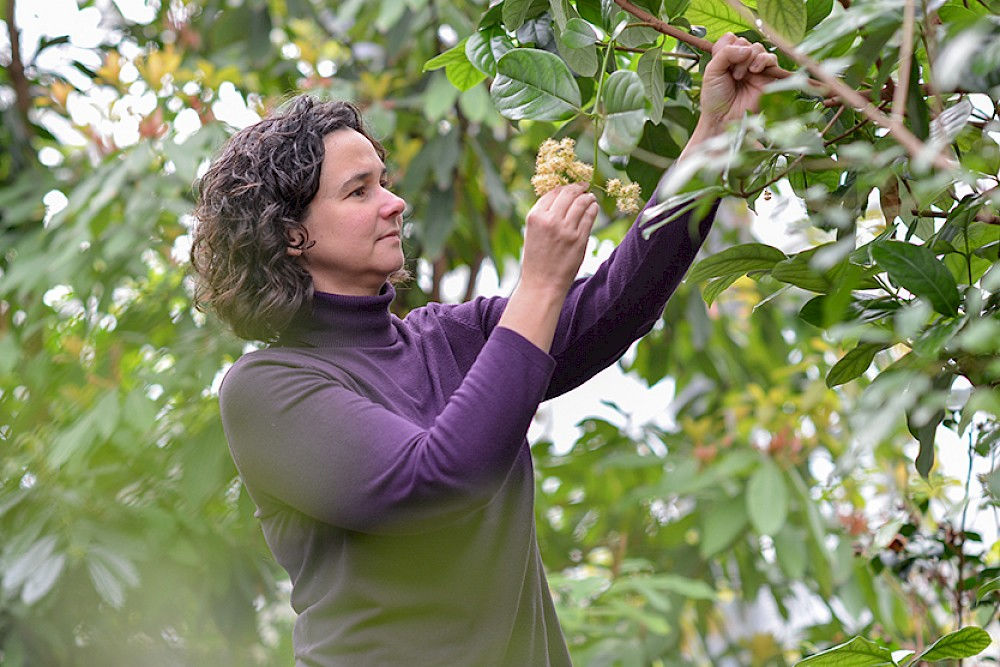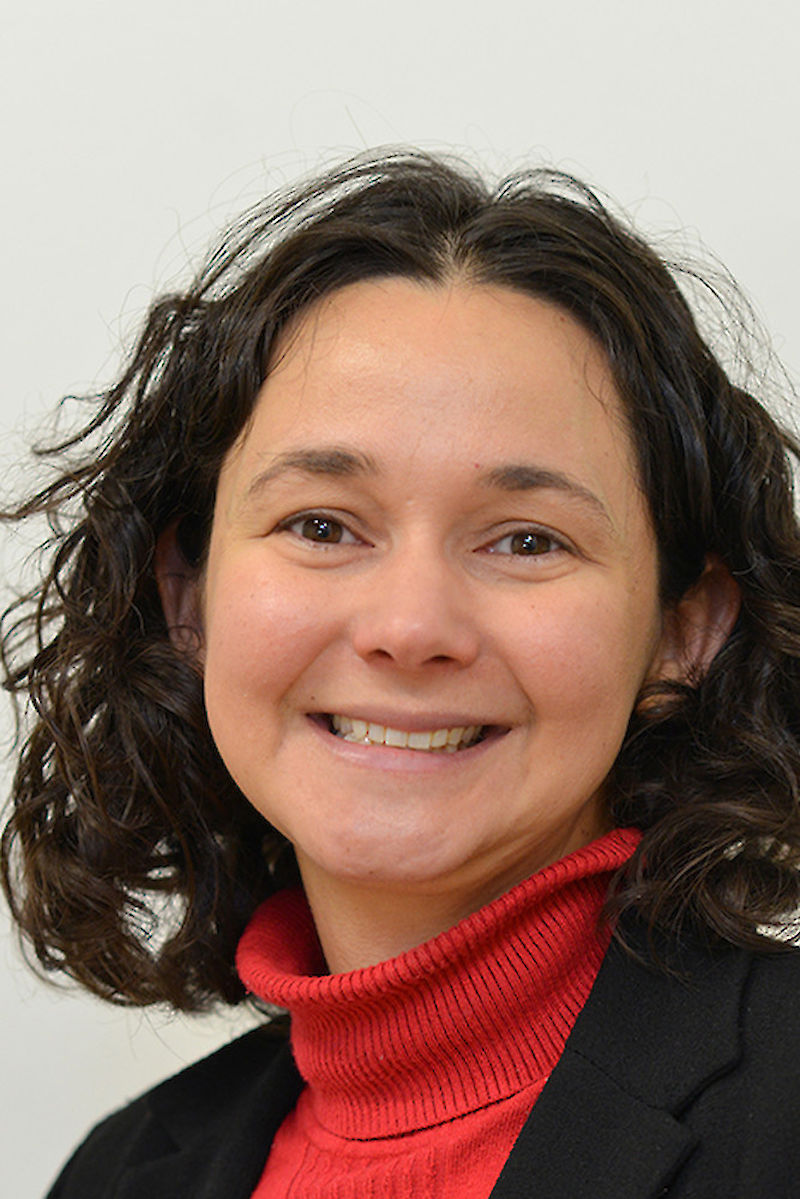Fascinated by plants

Professor Tiffany Knight enjoys working with plants. Standing in one of the greenhouses of the Botanical Garden of the University of Halle, she is fascinated by the variety of species. “This one is great!”, she calls out, briefly looking up and then down again at the rich green. Plants are very important for humans and the environment: “They turn carbon dioxide into oxygen, they regulate our climate and they can do many other things.” This is why it is so interesting and important to study the development of plant biodiversity all over the world.
Tiffany Knight, born in 1975, became professor of “Spatial Interaction Ecology” at the University of Halle on 1 February 2016. At the same time, she is also a member of the UFZ department for community ecology. The Alexander von Humboldt Foundation promotes Knights professorship at the University for five years with five million euros. Nonetheless, she will be working mainly at the German Center of Integrative Biodiversity Research (iDiv) Halle-Jena-Leipzig.
Ever since studying biology at Florida State University, Knight has been fascinated by plants. In 2003, she received her doctoral degree at the University of Pittsburgh for a thesis on plant population ecology. In 2005, Knight became assistant professor at Washington University in St. Louis. In 2010, she became associate professor.
The scientist is focused on the long-term development of plant biodiversity in ecosystems. “I am only interested in animals, insects and microorganisms if they affect my plants”, explains the biologist, including not only a small group of plants in a lab but all plants in the world which she is studying for her research. “My research is focused on the process of pollination of plants. After all, most of our wild plants and crop plants require animal pollinators in order to successfully reproduce and produce fruits.”
Historical data applied to the present
In 2013, Knight attracted greater attention with a study on the development of an area close to the small town of Carlinville in the US state of Illinois over the last 120 years. Knight wanted to find out how biodiversity changed over this long period. For this, she used data collected by the natural scientist Charles Robertson. At the end of the 19th century, he studied which insects pollinated which plant species. Part of this study was conducted by Knight again: She collected plants and bees and compared her results with those of Robertson. In the past, 109 bee species were counted for one particular group of plants. “But today we could find only about half of these bee species”, says Knight.
This strong decrease might have serious consequences for the ecosystem: “Back then, there were many redundancies. If, for example, one species disappeared, then other species could still provide the service of pollinating the plants. The ecosystem was in general very stable.” Due to the fact that there are significantly less species in the same area today, redundancy is not as strong as well and the system is in general more vulnerable.
The money that Knight will receive from the Humboldt Foundation should be spend for a similar, but larger-scale study in Switzerland. While Robertson focused on only one particular area, German botanist Hermann Müller (who was a student in Halle and Berlin and graduated in Jena) studied 20 different areas in Switzerland – also on different altitudes. Already in June this year, Knight is planning to conduct field work together with Dr. Walter Durka from UFZ in order to repeat Hermann Müller’s work and to compare the old and the new data.
Another project of Knight is focused, in particular, on tree populations on islands. “Ecosystems of islands are especially interesting, because here we can find about 25 percent of all plant species, although islands account for only 5 percent of the overall landmass.” Among other things, Knight wants to study how local native biodiversity is affected by the introduction of new species. “Exotic species can be a threat to the native ones”, explains Knight. However, this does not apply to all species. Why certain species can cause problems for an ecosystem has not yet been determined by science.
Knight’s eyes get brighter as she talks about her plans for field work and other trips. “Working in the field is so much fun for me”, she says. Although working in her office was an interesting part of her job as well, for example when creating huge databases or writing articles.
Research and Family
Although Knight was appointed in Germany only in February, she is already familiar with Central Germany and its focus on biodiversity research. In October 2014, her husband Prof. Dr. Jonathan Chase was appointed at the Institute of Informatics in Halle and iDiv. Since August 2014, Knight and Chase and their two children have been living in the city center of Leipzig. “It’s the perfect location for us”, says Knight. “Our apartment is not far away from iDiv and from an S-Bahn stop. This means I can easily get to Halle.” Her five-year-old son and two-year-old daughter go to a German kindergarten. “For our children it was no problem moving to Germany. By now, they are both fluent in German.” At the supermarket Knight is occasionally corrected by her son when ordering something in German.
Knight is currently getting used to her new role as a Humboldt professor. The last months were full of interviews with journalists and photoshoots. “As a scientist I am not used to that much attention”, the modest biologist says. She hopes that she will be able to focus more on her research again in the future.

